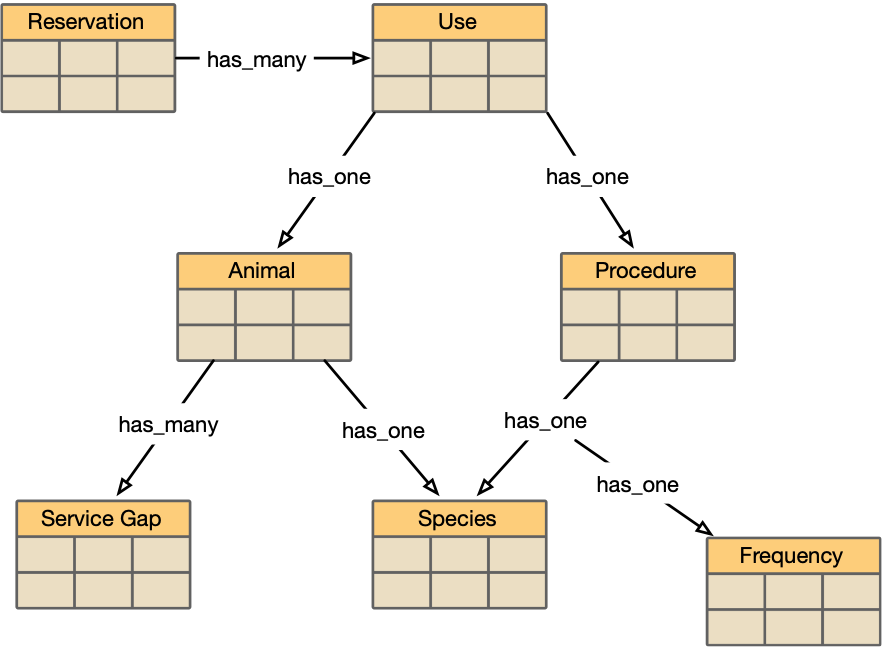This provides support code for writing Ecto test data builders that are used like this:
repo =
empty_repo()
|> procedure("haltering", frequency: "twice per week")
|> reservation_for(["bossie"], ["haltering"], date: @wed)
|> reservation_for(["bossie"], ["haltering"], date: @mon)That code constructs test data for a database configuration like this:
I claim that code is a better way to set up test data than other approaches.
In addition to creating rows in database tables, the functions produce
a "repo cache", conventionally bound to repo, that contains a view into
the database that makes common testing operations simpler.
For example, it's straightforward to have the repo structure contain
top-level fields that point directly to important values. This allows
you to avoid the busywork of keeping track of database ids. Instead,
there's only one "source of truth" and you use that:
# setup
repo =
...
|> animal("bossie", ...)
...
# The function under test
... VM.Animal.fetch(:one_for_edit, repo.bossie.id) ...
^^^^^^^^^^^^^^
That's surprisingly useful.
See USE.md for a description of using this package to create a custom test-data builder.
Add ecto_test_data_builder to your list of dependencies in mix.exs:
def deps do
[
{:ecto_test_data_builder, "~> 0.1.0"}
]
end